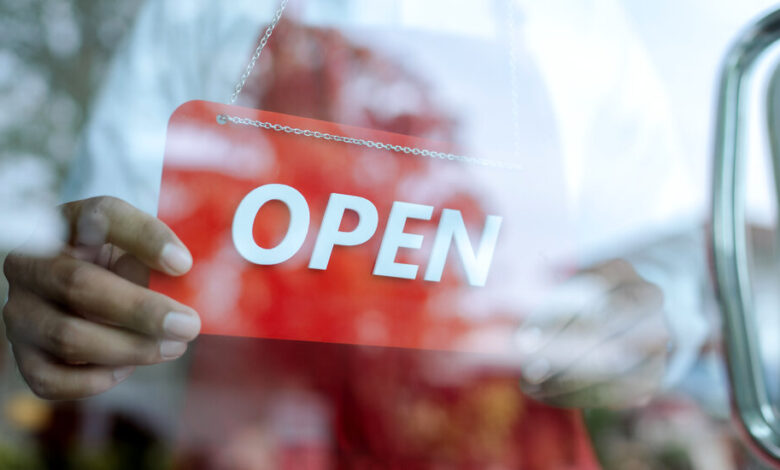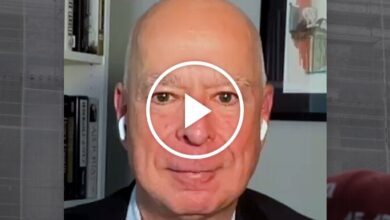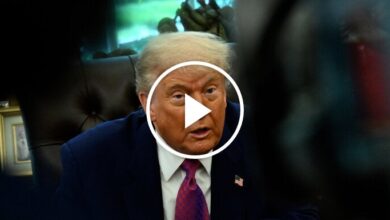
When it comes to economic news, we’ve had so much winning that we’ve gotten tired of winning, or at any rate blasé about it. Last week, we got another terrific employment report — job growth for 39 straight months — and it feels as if hardly anyone noticed. In particular, it’s not clear whether the good news will dent the still widespread but false narrative that President Biden is presiding over a bad economy.
Start with the facts: Job creation under Biden has been truly amazing, especially when you recall all those confident but wrong predictions of recession. Four years ago, the economy was body-slammed by the Covid-19 pandemic, but we have more than recovered. Four years after the start of 2007-9 recession, total employment was still down by more than five million; now it’s up by almost six million. The unemployment rate has been below 4 percent for 26 months, the longest streak since the 1960s.
Inflation did surge in 2021-22, although this surge has mostly subsided. But most workers’ earnings are up in real terms. Over the past four years, wages of nonsupervisory workers, who account for more than 80 percent of private employment, are up by about 24 percent, while consumer prices are up less, around 20 percent.
Why, then, are so many Americans still telling pollsters that the economy is in bad shape?
More often than not, anyone who argues that we’re in a “vibecession,” in which public perceptions are at odds with economic reality, gets tagged as an elitist, out of touch with people’s real-life experience. And there’s a whole genre of commentary to the effect that if you squint at the data hard enough, it shows that the economy really is bad, after all.
But such commentary is an attempt to explain something that isn’t happening. Without question, there are Americans who are hurting financially — sadly, this is always true to some extent, especially given the weakness of America’s social safety net. But in general, Americans are relatively optimistic about their own finances.
I wrote recently about a couple of Quinnipiac swing-state polls that asked registered voters about both the economy and their personal finances. In both Michigan and Pennsylvania — states crucial to the outcome of this year’s presidential election — more than 60 percent of respondents rated the economy as not so good or bad; a similar percentage said that their own situation is excellent or good.
Americans are upbeat not just about their own circumstances; they’re also upbeat about their local economies. A recent Wall Street Journal poll of swing state voters found that voters have negative views of the national economy but significantly more positive views about the economy in their state. This is consistent with the Federal Reserve’s report on economic well-being for 2022 (published in 2023), which shows a much higher percentage of Americans assessed their local economy as good or excellent than the percentage who said the same about the national economy.
Basically, Americans are saying, “I’m doing OK, people I know are doing OK, but bad things are happening somewhere out there.” As The Journal’s Greg Ip wrote, “When it comes to the economy, the vibes are at war with the facts.”
What explains this disconnect? Inflation surely contributes to bad feelings about the economy. New research by Harvard’s Stefanie Stantcheva confirms an old insight: When both wages and prices are rising, people tend to believe that they earned their wage increases but that inflation took away their hard-won gains.
However, inflation aversion doesn’t explain why people think their state is doing well but the nation is a mess.
The elephant in the room — and it is mainly an elephant, although there’s a bit of donkey too — is partisanship. These days, Americans’ views of the economy tend to be determined by political affiliation rather than the other way around.
This is true for supporters of both parties, but statistical analysis shows that the effect of partisanship on economic perceptions is much stronger for Republicans — who for much of last year were roughly as negative about the economy as they were in the aftermath of the 2008 financial crisis and during the stagflation of 1980 — so the fact that a Democrat is president drags down average consumer sentiment. Any discussion of economic perceptions that doesn’t take this factor into account is missing a big part of the picture.
It’s not hard to see where this asymmetry comes from. Republican politicians and media are united in trashing the Biden economy, which Donald Trump says is “collapsing into a cesspool of ruin,” in which “stores are not stocked” — something that simply isn’t true. Democrats, on the other hand, are divided, with some progressives talking down the economy because they fear that acknowledging the good news might undermine the case for strengthening that weak social safety net.
If you ask me, more progressives should celebrate the current economy, not just to help Biden get re-elected, but because economic success vindicates the progressive vision. I’d argue that Biden deserves some credit for the good news, but the more important point is that policies like the expansion of Obamacare and student debt relief have not, contrary to conservative predictions, dragged the economy down — which means that it’s OK to call for more.
The truth is that the U.S. economy is a remarkable success story. Don’t let anyone tell you that it isn’t.
Source link




